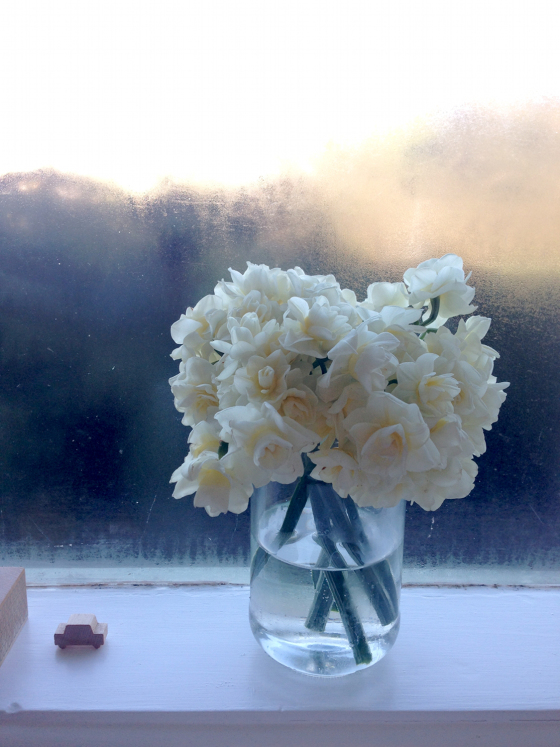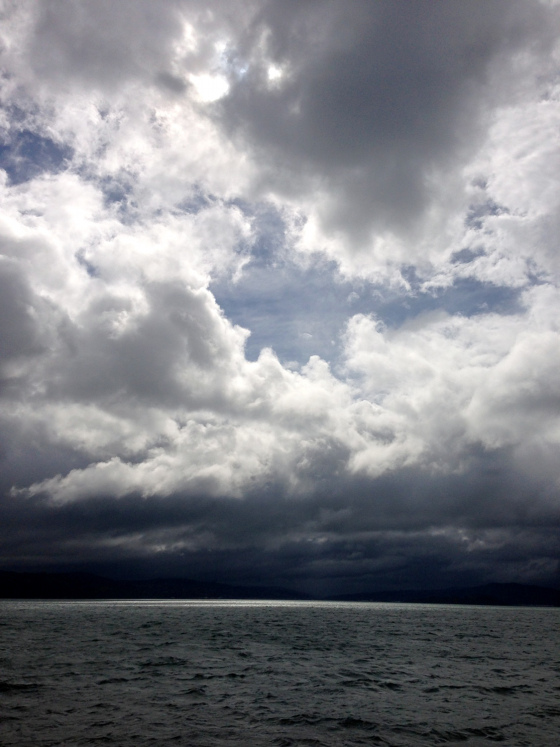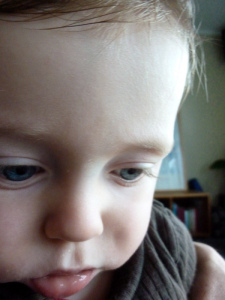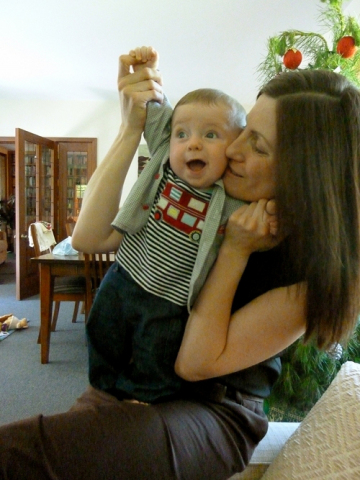In two months I will have finished the final draft of my PhD. During this time I’ll be doing many things to stay sane, like keeping fresh flowers in my study, and my Sunday long run around Wellington harbour.
Category Archives: the PhD
Tuesday Poem: “Operation, October” by Bryan Walpert
Operation, October
Someone is inserting a knife into my father,
slipping it into his skin in the way
we might imagine it to sound
in our darkening fear, walking home, of giving
ourselves to someone as an animal does
in the brush in some countries. My father
will not remember any of this, and while
they cut, in these hours, I know more
than my father, feel that knowledge
heavily, like a wool blanket
I am too deeply in dream to kick off.
Winter is coming. The fireflies
no longer poke holes in the backyard.
The hospital is two thousand miles away.
Each summer, he urged me to join a team,
throw a ball, climb into a uniform. Things
he had never done, and I would never do
for him. Of course, in the throes of worry,
I nearly wish I had, almost as much as I wish
he had not asked. But who accepts another?
Despite my begging, each Halloween,
Mother would refuse to sew for me
the devil’s horns, the hero’s cape, the doctor’s coat.
The sewing has come at last, while we wait,
each imagined stitch of his back, when I let
myself think of it, the tick of an implacable
metronome. Is it because my face
grows into his that I am most disturbed
by the image of his limp form
wheeled into an elevator, lifted
onto an operating bed? I lie by the phone
listening to the wind weave its fabric.
He had no choice but to ask,
just as I had no choice but to refuse
to be the boy he imagined, just as Mother
had no choice but to refuse to make me
into what I imagined, and so on.
And so on a single gurney each of us
is rolled beneath the fluorescent bulbs,
and, tonight, in the window’s reflected light,
I am myself, the spitting image,
untouched flesh of my father.
“Operation, October” is from Bryan Walpert’s collection of poems, Etymology (Cinnamon Press). I’ve previously posted another poem from this collection (called “Horse Story”) as a Tuesday Poem. It’s a brilliant collection, and I think this poem is one of the most touching of the collection. I enjoy the beautifully rendered imagery, the dream-like quality, and the poem’s tender sadness.
Bryan Walpert is also the author of A History of Glass (Stephen F. Austin State UP, forthcoming October), and Ephraim’s Eyes (Pewter Rose Press), named a Best Book of 2010; and a scholarly monograph, Resistance to Science in Contemporary American Poetry (Routledge). His work has been published widely in journals or anthologies in NZ, the UK, and his native U.S., and has received a number of awards, most recently the James Wright Poetry Award from the Mid-American Review. He teaches creative writing at Massey University’s School of English & Media Studies in Palmerston North. At the moment he is seeking a publisher for his new collection of poetry, Native Bird.
For more information, visit http://bryanwalpert.com.
For more Tuesday Poems check out the hub.
Thoughts on: Busyness
This morning my husband and I drove to Kelburn to grab a coffee and take our son out for some food. In the village I pulled into a two car space, but the car in front of me stopped in the middle. When the woman got out I popped my head out the window and nicely asked her to move forward. She looked at her car, at me, and then said we wouldn’t fit and crossed the road. I was so angry! Why are people such jerks? I wanted to smash eggs on her windscreen. I wanted to leave a mean note under her wipers.
After parking down the road, as we did our chores, I kept my eye on her. My husband kept his eye on me as one does with a horse that is prone to bolting. A horse that has been known to argue with strangers. She got cash, got back into her car, and drove away. Either this woman was in a genuine rush (baby, deathbed, wedding?), or she was made rude by her own sense of busyness.
Busyness has been on my mind. For the last fourteen months I’ve been trying to juggle caring for my delicious son with my doctoral studies. If I’m honest, for the last 34 years I’ve been far too busy. Being busy is addictive. Being busy makes you feel important, and worthwhile, and like you’re doing a good job. My cousin–a busy, working, super hero mum with two kids–recommended I read Rushing Woman’s Syndrome by Libby Weaver.While I haven’t read the book yet (I am twenty fifth in the reserves queue at the central library, which says a lot), I’ve made the decision to slow down. This week the head of deparment approved my request to complete the final year of my PhD part-time. What a scary idea. Who am I when I’m not so busy? What will it mean to slow down?
 A half-moon at Mesopotamia, South Island.
A half-moon at Mesopotamia, South Island.
It’s not busy. It’s just hanging out.
Back to the PhD
This is what Sam looks like when he concentrates. Here he is working hard to pull the cord from my camera case. It is also what I look like when I concentrate.
At the end of April I return to my PhD studies. Sam will be spending 26 hours a week in a forward-thinking and fun childcare we found close by. After nine months spending all day together I will miss him a lot, but I can’t wait to write and read in the silence of my study. Before I went on maternity leave my supervisors and I agreed that I should focus my research thesis solely on the depiction of nature in Robert Hass’s work (I was looking at two other poet’s work before this decision). It’s a good decision. I am looking forward to spending my time with his poems.
Later this year, my first collection of poems–my other baby–will be published by Hue & Cry, so that is something amazing to look forward to.
Tuesday Poem: “Mowing” by Robert Frost
Mowing
There was never a sound beside the wood but one,
And that was my long scythe whispering to the ground.
What was it it whispered? I knew not well myself;
Perhaps it was something about the heat of the sun,
Something, perhaps, about the lack of sound–
And that was why it whispered and did not speak.
It was no dream of the gift of idle hours,
Or easy gold at the hand of fay or elf:
Anything more than the truth would have seemed too weak
To the earnest love that laid the swale in rows,
Not without feeble-pointed spikes of flowers
(Pale orchises), and scared a bright green snake.
The fact is the sweetest dream that labor knows.
My long scythe whispered and left the hay to make.
(Source: http://www.sonnets.org/frost.htm#004)
I discovered “Mowing”, a wonderful sonnet by Robert Frost, while reading an article about using field trips to help teach nature writing (for my PhD–this is not my usual bedtime reading!). In the article, the teacher taught his students how to mow a field using a scythe. Fun. The article also talks about Frost’s dedication to factual description of the countryside. For example, he names the flower in the poem as “Pale orchises”, not accidentally, but because he wanted to be true to the field that he has mown. “Anything more than the truth would have seemed too weak”, he says. Robert Hass, who is the focus of my PhD thesis, is also persistent and specific in his descriptions of the natural world. I see it as a sort of homage; a purposeful naming to make others notice.
For other Tuesday Poems check out the hub.
Hello Twenty Twelve
Twenty twelve, you’re looking a little chaotic. A book, a baby, and a PhD. It sounds like a bad movie title. For inspiration, I’ve been reading a few blogs where other writers talk about their intentions and fears for the new year. Usually I would make a sensible list of resolutions such as ‘run 40km a week’, or ‘write every day’, that I can aim for, half achieve, berate myself for, and then get over. Instead, this year, I’ve decided to take An Approach, which is something I learned while working in government. An Approach is a way of heading toward a goal without actually committing to the specifics of what will be achieved.
I know I want to work hard at my doctorate, and to keep on writing the book reviews and contract writing I enjoyed pre-Sam. But this year I’ll have to be careful with my time. I’ll also have to be okay with putting down tasks unfinished, at which I am terrible. I’m sure it’s genetic. Even now my father can’t leave the drive unswept to come in for dinner. With a baby I’ll also have to master typing one-handed which may be a valuable skill if I ever lose a hand in a zoo incident.
I’ve decided my approach for the next year is this: Have few expectations / do the best I can with the time I have / give a lot of love. Hooray!
Tuesday Baby
I’ve made the difficult (while at the same time easy) decision to postpone going back to my PhD until April next year. While Sam is so little he needs me to be a full time mum and a part time writer, rather than try to do both full time. And how can I refuse baby blue eyes? I’ve put aside some time each week to write though, and am looking forward to those hours.
Tuesday Poem: “Smells” by Jane Buxton
Smells
I love . . .
The smell of the rain on the warm footpath,
the smell of our baby all clean from her bath,
the smell of clean sheets when Mum makes
XXmy bed,
and the smell in the kitchen when Dad’s
XXmaking bread.
I love . . .
the smell of the sea, all sharp, fresh and briny,
the smell of our Christmas tree, pungent and piny,
the smell of sweet peas climbing over the wall.
But the warm smell of horses I love best of all . . .
This sweet and nostalgic poem by Jane Buxton comes from the book 100 New Zealand Poems for Children (Random House, 1999), edited by Jo Noble and illustrated by David Elliot. Jane Buxton is a New Zealand children’s author who was born in Otaki, but currently lives in North Canterbury.
I bought 100 New Zealand Poems for Children a few month ago because I am trying to build up a library for (my son) Sam of childrens’ writing about New Zealand. I want at least some of the books he reads to be about the place he lives. And because a PhD is inescapable, being able to read about your home relates to my doctoral research on Robert Hass, who is known for writing about his home, California. In conversation with Claire Miller from GRIST magazine, Hass talks about the connection between understanding the history of a place, and our careful treatment of the land:
It felt to me then that American culture existed in a kind of dream of itself, not particularly connected to reality. One of the qualities of that dream in California was this absence of any real and fixed sense of history. It was in the 1960s that some developers out in Contra Costa county decided to name a new subdivision San Diablo, turning the devil into a saint. The historical roots of language were so shallow here. That seemed to me a symptom of our carelessness in the way we treat the American land. (Miller, par. 12)
It seems that Hass’ poetry tries to engage with “our carelessness” by writing about the natural and cultural history of California. I think that the subject allows him to represent the landscape of his home. He goes on to say: “Since most books in my childhood were published on the East Coast … my nature wasn’t represented in the world. And so one of the pleasures of writing about California and reading the few writers who were writing about California was that this world was represented” (Miller, par. 21).
I think it is important that our nature and identity are represented in the world, and for me Buxton’s poem reminds me of Christmas in Christchurch, summer sun showers, and riding my friend’s horse on Banks Peninsula. I tried to get permission to use the poem, but found it impossible to track down Buxton. In the unlikely chance that her publisher reads my blog, I ask for forgiveness in lieu of permission.
For other Tuesday Poems check out the hub.
Tuesday Poem: “Relief” and “Mountains” by Sarah Jane Barnett (video)
The following clip is my presentation for the ASLE Conference that was held at Indiana University, US, from June 21-26, 2011 (ASLE stands for the Association for the Study of Literature & Environment).
The presentation was part of a paper-jam panel titled From Home to the World: International Ecopoetries. The session featured five poets: Amir Hussain, Michelle Menting, Trey Moody, Bill Hemminger, and myself. Each presentation (and therefore my video) was eight minutes long. In my clip the text of my poems scroll as I read out the poems, which apparently helped people understand my kiwi accent!
Check out other Tuesday Poems on the hub.
Tuesday Poem: A few lines from Robert Hass
Robert Hass: US poet laureate from 1996 to 1997, professor, poet, environmentalist, and he’s not afraid to write about sex. Hass is by far my favourite poet. This is partially for the way he balances sentimentality with a self deprecating awareness; he never goes too far, or when he does he looks wryly back on his words. But it is also because I find his poems so easy to love. In saying this, not everyone is a fan. The review, “Are you smeared with the juice of cherries?” by Michael Robbins in Poetry Magazine, which I found on The Poetry Foundation website, slammed Hass’ work and elicited a series of responses that eventually turned into name calling in the comments (and thanks to Joan Fleming for putting me onto the debate).
Hass is the second poet I am studying for my doctorate, and I am currently reading Field Guide (1973), Hass’ first book that was written during the Vietnam War. Although the poems dwell on marriage and the Californian landscape, they also touch on violence. In the forward to Field Guide, editor Stanley Kunitz said: “Reading a poem by Robert Hass is like stepping into the ocean when the temperature of the water is not much different from that of the air. You scarcely know, until you feel the undertow tug at you, that you have entered another element” (xi). Instead of posting a poem by Hass as my Tuesday Poem, I want to talk about some lines from Field Guide that show the effortless that Kunitz’s suggests.
Of the sea, in “On the Coast near Sausalito” Hass says: “I won’t say much for the sea / except that it was, almost, / the color of sour milk.” In “Palo Alto: The Marshes” he opens with “She dreamed along the beaches of this coast. / Here where the tide rides in to desolate / the sluggish margins of the bay, sea grass sheens copper into distances.” Hass uses simple language to create his images – the sea is the colour of “sour milk”; the grass “sheens copper.” For me, his descriptions rarely feel over-written.
I think that Hass manages to write about love and sex in the same way. In “Adhesive: For Earlene” he opens: “How often we overslept / those grey enormous mornings / in the first year of marriage.” He goes on to say “By spring your belly was immense / and your coloring a high rosy almond.” In “At Stinson Beach” Hass describes his wife: “How the flower of her body / Danced her dresses into light.” There is nothing overly striking about a large pregnant woman, but the words “spring”, “immense”, “belly” (compared to the more clinical stomach), and “rosy” create an innocent and almost wondrous tone. The “enormous mornings” at the start of the poem pair with the “immense” belly to suggest the possibility the poet feels.
I think my favourite lines are from “The Pornographer, Melancholy”, a poem that is part of a series about a pornographer. The poem concludes: “His friends are gone and he is reflective. / The essence of seasons is repetition. / The die and shine, die and shine.” The repetition in the last line might feel cliché had Hass not warned the reader it was coming: “The essence of seasons is repetition.” The pornographer’s emotions are quietly tied to the seasons — he is “reflective” just as the seasons “shine.” It is a clever and understated ending.
That’s all from me this fortnight. For more poems check out the Tuesday Poem blog.






